Tesla Model 3: Coolant Pump - HV Battery - Remove
Tesla Model 3 2017-2024 Service Manual / Thermal Management / Cooling System / Coolant Pump - HV Battery (Remove and Replace) / Coolant Pump - HV Battery - Remove
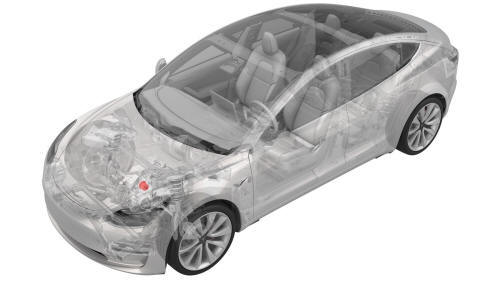
Remove
- Remove the underhood storage unit. See Underhood Storage Unit (Remove and Replace).
- Disconnect 12V power. See 12V Power (Disconnect and Connect).
- Remove the front aero shield panel. See Panel - Aero Shield - Front (Remove and Replace).
- Position a coolant drain under the superbottle.
- If the vehicle is equipped with dual motors, perform these steps. Otherwise, go to step 6.
- Install a foldable funnel underneath the front drive unit heat exchanger.
Note: Make sure the foldable funnel covers the front drive unit 12V
connector, steering rack, and is positioned to catch fluid from the heat
exchanger coolant outlet.
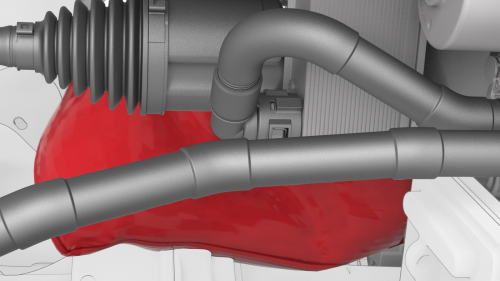
- Release the clip and disconnect the front drive unit heat exchanger to
superbottle hose from the heat exchanger coolant outlet, and then drain the
coolant into the coolant drain container.
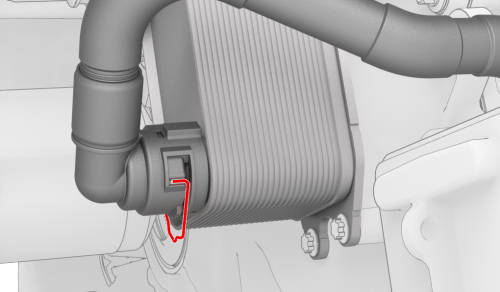
- Install plugs into the front drive unit heat exchanger to superbottle hose and the heat exchanger coolant outlet.
.jpg)
- Release the clip that attaches the electrical harness to the superbottle.
.jpg)
- Disconnect the electrical harness from the HV battery coolant pump connector.
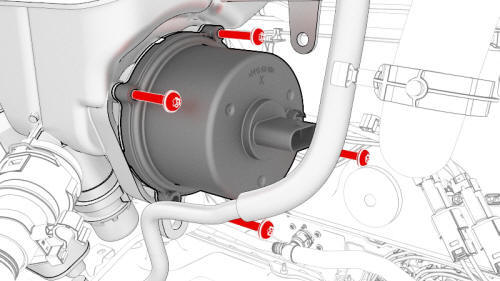
- Remove and discard the bolts that attach the HV battery coolant pump to
the superbottle, and then remove the pump from the superbottle.
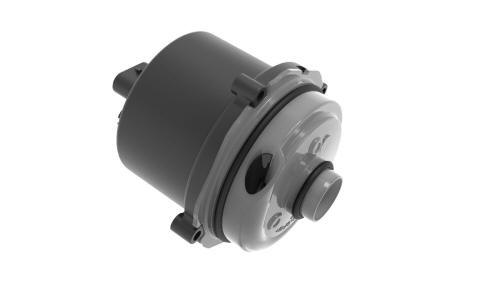
READ NEXT:
 Coolant Pump - HV Battery - Install
Coolant Pump - HV Battery - Install
Install
Remove and discard any o-rings or debris in the superbottle where the
coolant pump will install.
Make sure that new o-rings are installed onto the new coolant pump.
Lubricate the o-rings
 Coolant Pump - Powertrain (Remove and Replace)
Coolant Pump - Powertrain (Remove and Replace)
Remove
Remove the underhood storage unit. See Underhood Storage Unit (Remove
and Replace).
Disconnect 12V power. See 12V Power (Disconnect and Connect).
Remove the front aero shield panel. See P
 Cooling System (Check and Fill)
Cooling System (Check and Fill)
Remove
Remove the rear underhood apron. See Underhood Apron - Rear (Remove and
Replace).
Remove the cabin intake duct. See Duct - Cabin Intake (Remove and
Replace).
Remove the outer HVAC ple
SEE MORE:
 Foam - Cushion - Driver Seat (Remove and Replace) - Install
Foam - Cushion - Driver Seat (Remove and Replace) - Install
Install
Install the seat cushion foam to the seat cushion frame, and then fasten
the clips (x3) that attach the foam to the frame at the outboard and inboard
sides, and at the front.
Note: Make sure that the seat heater connector and seat occupied
sensor assembly passes through the seat susp
 Handle - Exterior Release - Door - Front - LH (Remove and Replace)
Handle - Exterior Release - Door - Front - LH (Remove and Replace)
Warning: The side impact airbag deployment depends on the front door
sensor's ability to detect a side impact from air pressure. Make sure that there
are no uncovered holes in the front door shells. Additionally, always reinstall
plugs or tape when servicing or inspecting the front doors and t
© 2019-2024 Copyright www.tmodel3.com

